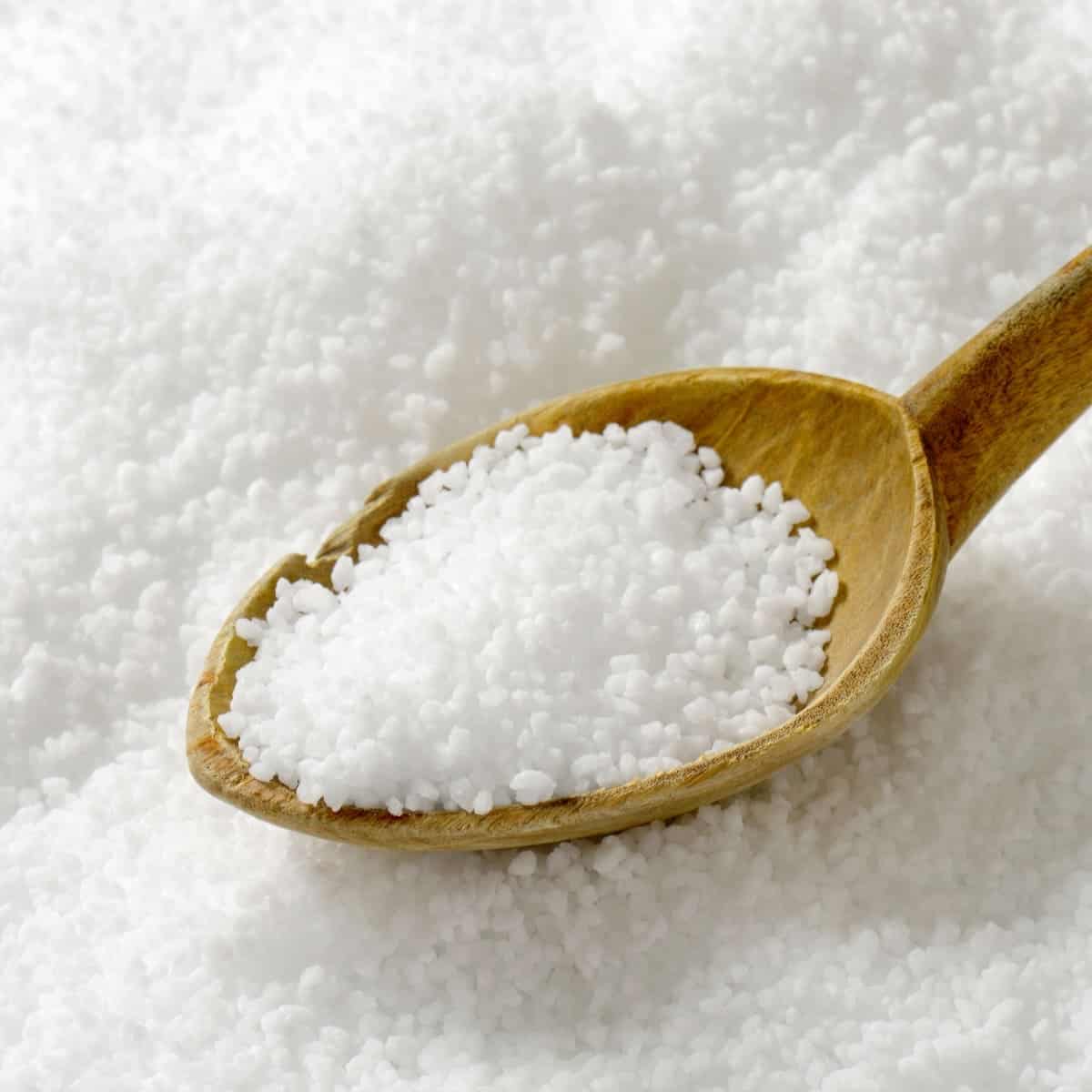
Kosher salt is a mainstay of any home chef's kitchen.
But inevitably, there comes a time when you reach for it, and it's not there. Can you even cook anymore?
What you need is a tried-and-tested kosher salt substitute.
Sea salt may come to the rescue, but what if you don't have any? What about that pot of Himalayan pink salt? Can you use table salt instead of kosher salt?
Time for a kitchen rescue. Let's cook!
Jump to:
- Understanding Kosher Salt
- The Unique Properties of Kosher Salt
- Common Uses of Kosher Salt in Recipes
- Best Substitutes for Kosher Salt
- Specialty Kosher Salt Alternatives
- Tips for Using Kosher Salt Alternatives
- What Is a Substitute for Kosher Salt When Pickling?
- Kosher Salt Substitute: Frequently Asked Questions
- Keeping it Kosher With Our Favorite Substitutes
- Recipe
Understanding Kosher Salt
Kosher salt is a coarse, flat-grained edible salt without additives that is commonly used in cooking and baking. It salts food in a gentler way than table salt due to its larger grain size and has no iodine content.
Its coarser texture makes it an ideal choice for seasoning dishes, as it brings out the flavor of ingredients while also helping our body conserve water.
The Unique Properties of Kosher Salt
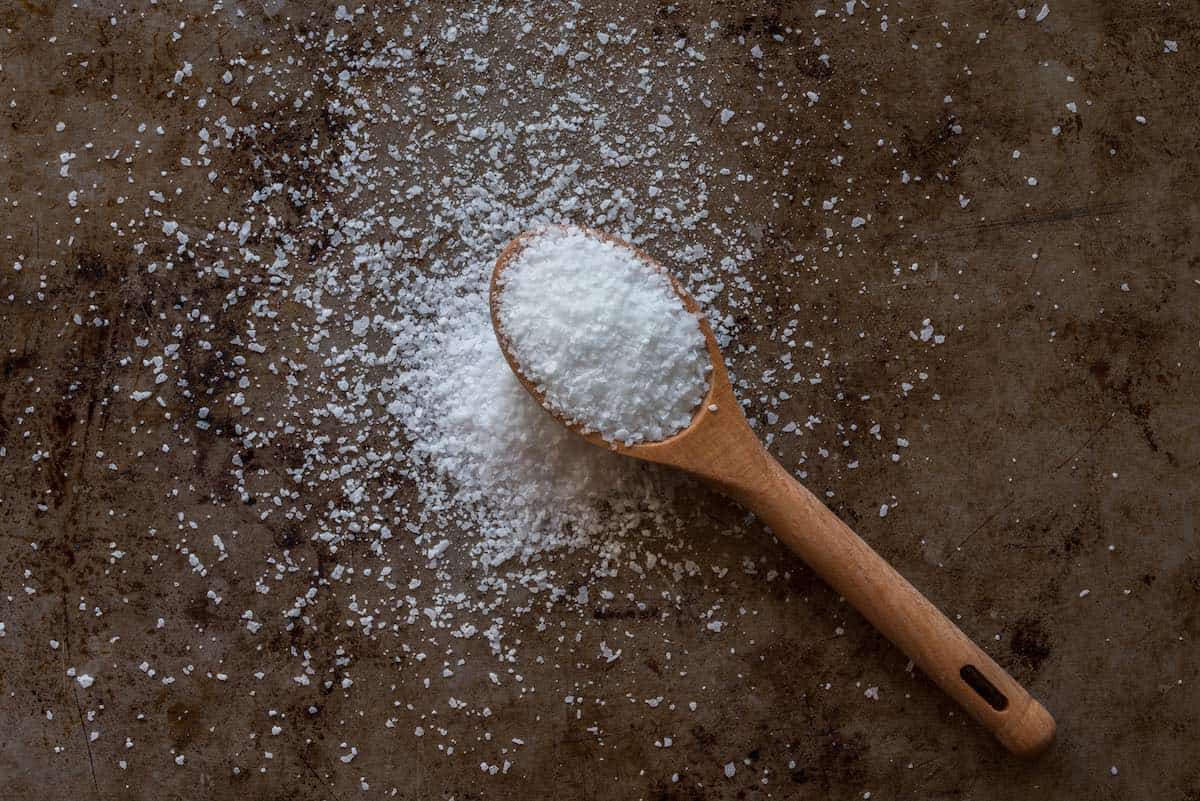
Kosher salt adheres to kashrut, the set of Jewish dietary laws, and is free from impurities like anti-caking agents or additional minerals. Healthline outlines the rules and benefits of kosher preparation here.
- No added iodine: Kosher salt provides a cleaner flavor profile than iodized table salt.
- Larger grains: The coarser grains dissolve more slowly on your tongue compared to fine-grained alternatives.
- Better adherence: The large flakes stick better to foods when seasoning them before cooking—making this essential ingredient perfect for curing meats.
Common Uses of Kosher Salt in Recipes
Chefs worldwide prefer using kosher substitutes over other forms like regular sea salt because they deliver pure flavors with minimal interference from unwanted additives.
- Seasoning meat: Kosher salt is an excellent choice for curing or brining.
- Baking: The coarse texture helps create a delicious crust on breads and pastries while also providing a clean taste.
- Garnishing dishes: Sprinkling kosher salt over finished plates adds both visual appeal and complex flavor profiles that elevate your culinary creations to new heights.
Best Substitutes for Kosher Salt
When you don't have kosher salt or want a different taste, try these great substitutes available at most stores.
1. Coarse Sea Salt
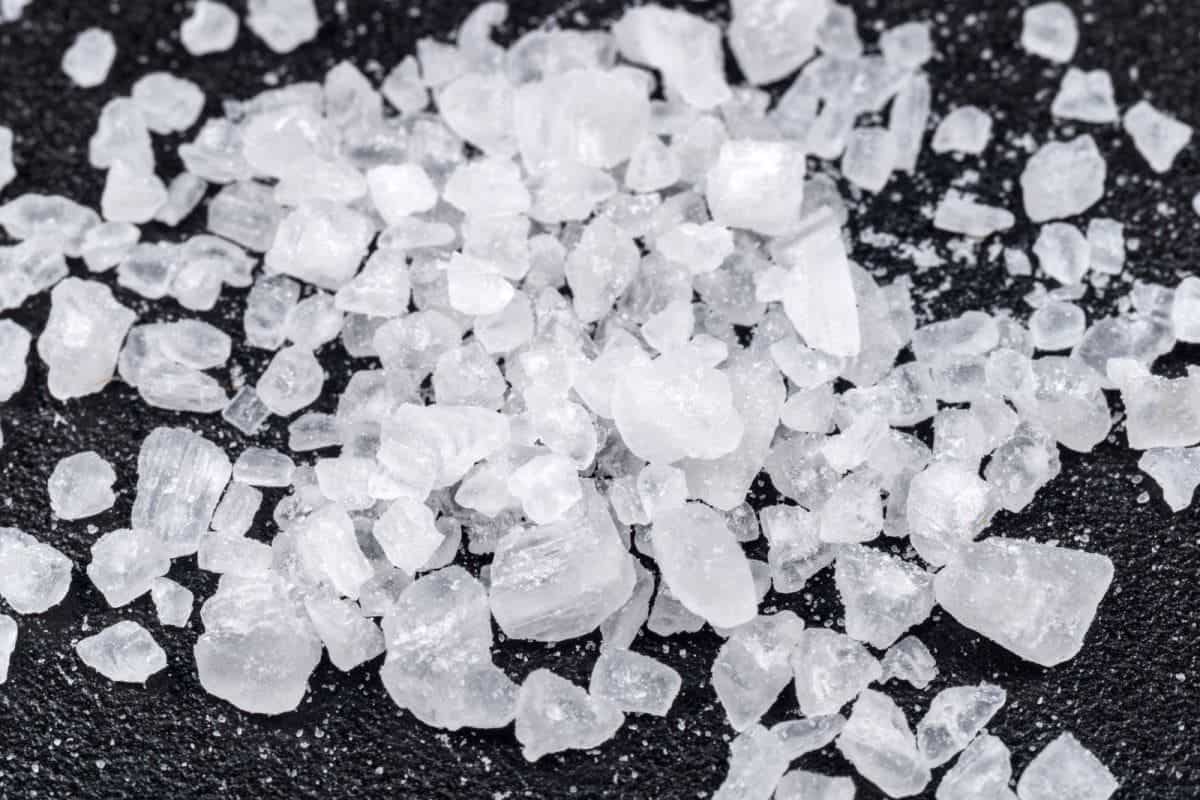
Coarse sea salt is harvested from evaporated sea water and has larger, chunkier crystals than many other types of salt. It typically contains a bit of trace minerals, which can add a slight difference in flavor depending on the source of the salt.
To substitute coarse sea salt for kosher salt, you can generally use it in a 1:1 ratio. However, the size of the crystals can vary between different brands of coarse sea salt, so it may be worth doing a taste test to ensure the correct level of saltiness for your dish.
Best for: Coarse sea salt is a fantastic seasoning for meat, whether it's steak, pork chops, roast lamb, or our special air fryer yogurt marinated chicken. It also works well in hearty stews like Bolognese sauce.
2. Himalayan Pink Salt
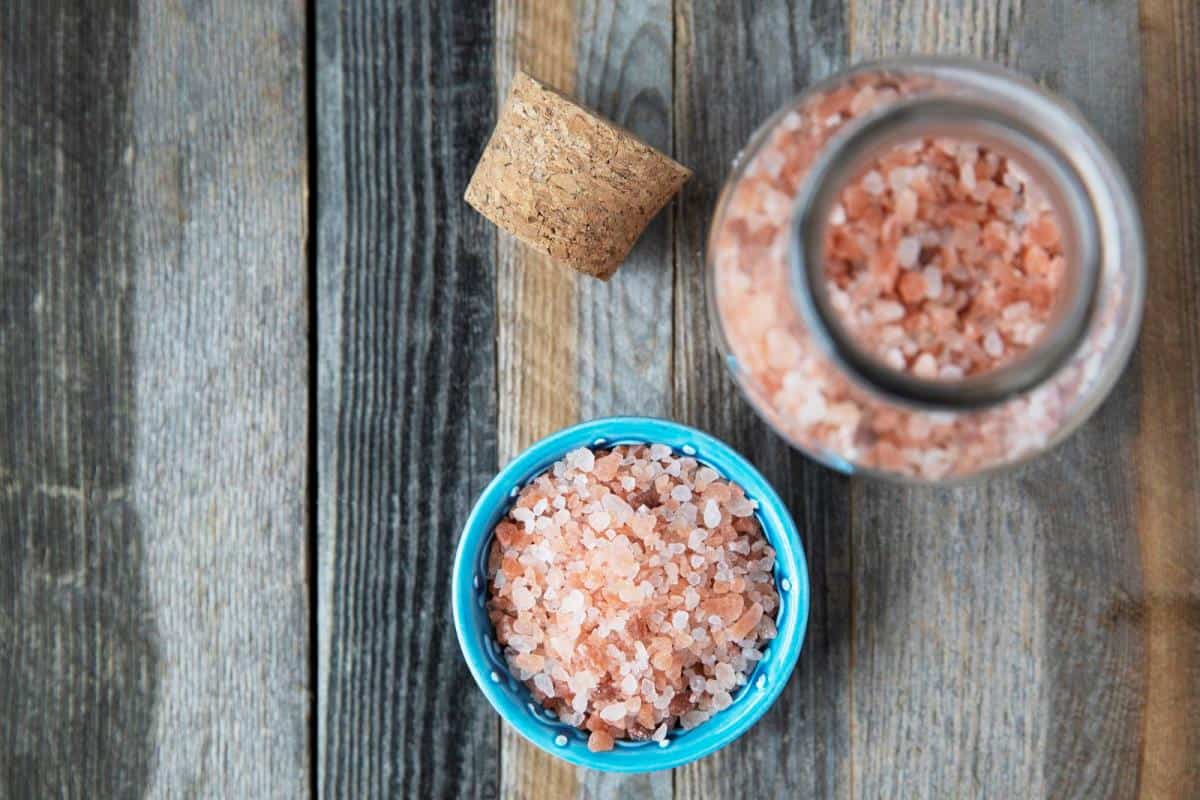
Mined from ancient seabeds in Pakistan, this mineral-rich rock salt adds depth to your recipes while still providing the essential sodium chloride content needed for preserving foods.
When using Himalayan pink salt, start with half the amount called for by your recipe before adjusting based on personal preference since it has a stronger, saltier taste than kosher varieties.
Best for: Himalayan pink salt shines in powerful South Asian dishes and curries. Consider using it in a rich lamb jalfrezi, mutton curry, an easy air fryer chicken curry, or a mouth-watering nihari.
3. Fine Sea Salt
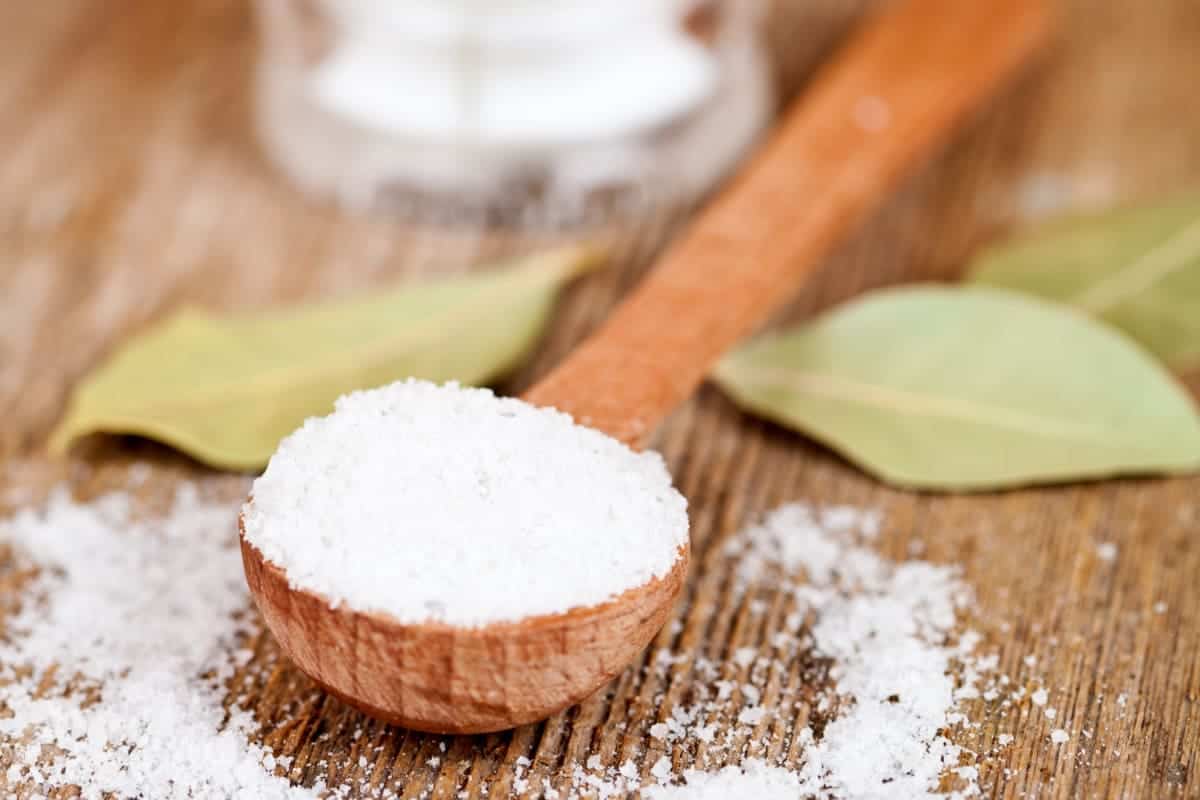
Fine sea salt is a great kosher salt substitute because of its clean flavor. It's a natural choice for stews and soups, and it's a great option for baked goods because it's so finely ground.
Use equal amounts or slightly less since it dissolves quickly and has a more concentrated salty flavor.
Best for: Fine sea salt can add extra flavor to baked goods such as cookies, no-bake chocolate cheesecake, and flapjacks. It's a fine choice for salting a margarita glass. It also works well for brining meat.
4. Regular Table Salt
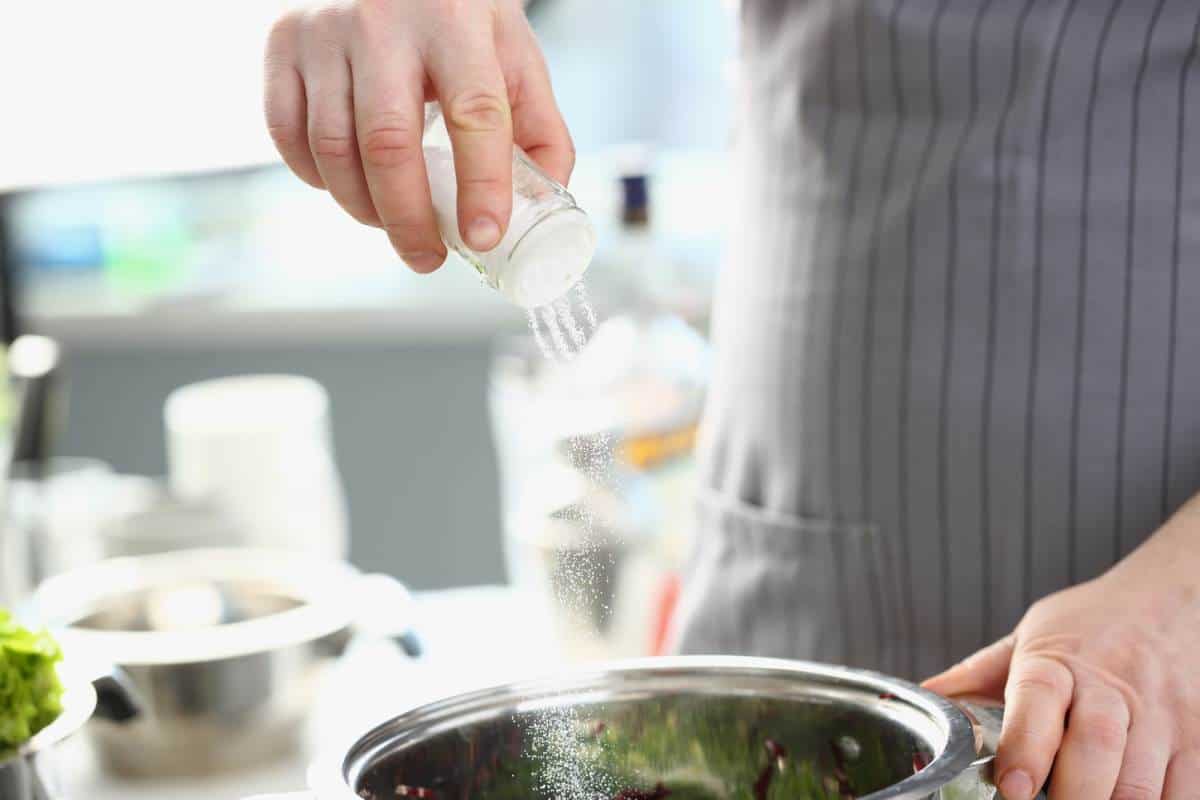
Regular table salt, also known as iodized salt, is another option for replacing kosher salt. However, it contains anti-caking agents and sodium iodide that might alter the final dish's texture and taste.
To maintain balance in your recipes, reduce the amount by half what the recipe calls for when substituting table salt for kosher salt.
Best for: When used in moderation, table salt can substitute for any recipe that calls for kosher salt, from cooking meats, vegetables, and grains to baking.
Specialty Kosher Salt Alternatives
Spice up your dishes with specialty salt alternatives that not only serve as excellent kosher salt substitutes but also bring their own distinct flavors and visual appeal to the table.
1. Hawaiian Red/Pink Alaea Sea Salt
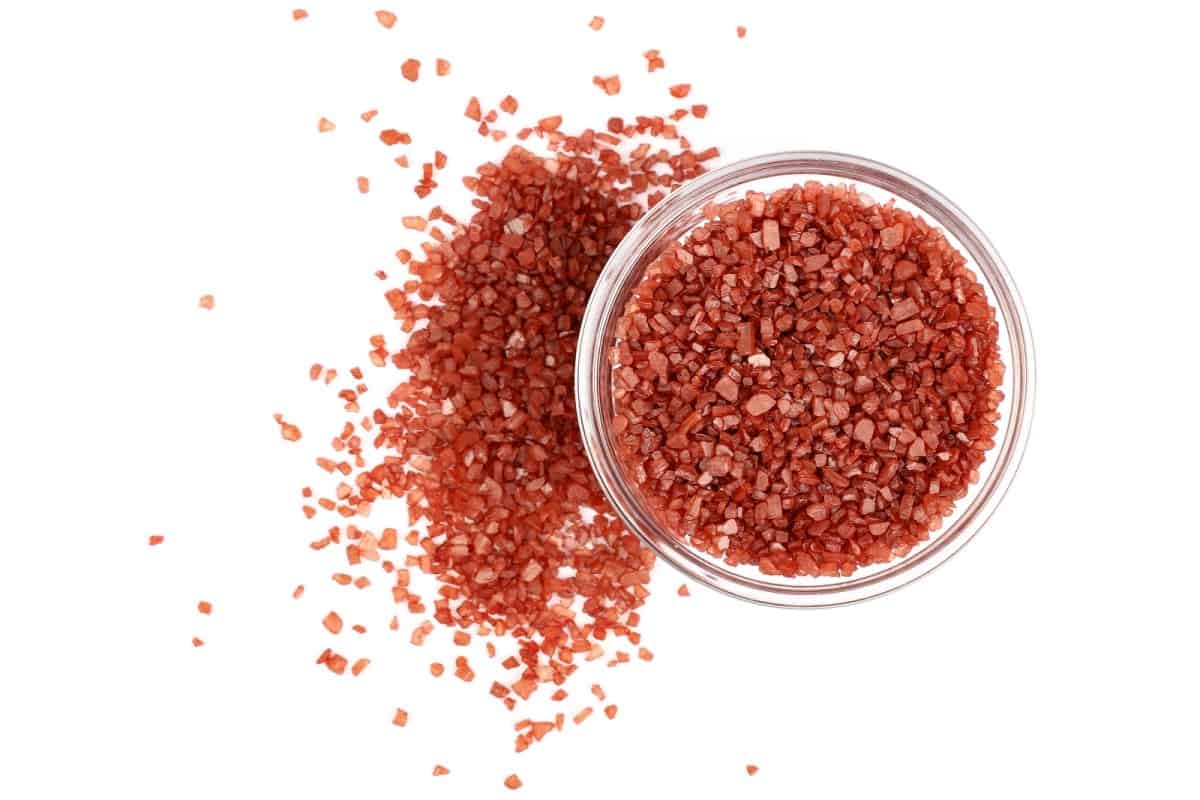
Pink Alaea sea salt, also known as Hawaiian sea salt, is an unrefined salt that gets its pink color from the volcanic clay ('Alaea') with which it's mixed. The clay enhances the salt's mineral content and adds a subtle, earthy flavor.
To substitute kosher salt with Pink Alaea sea salt, keep in mind that it's generally more flavorful, so start with a smaller quantity and adjust to taste.
Best for: Hawaiian red salt shines when used on grilled meats, seafood dishes like air fryer tuna steaks, or vibrant salads.
2. Fleur de Sel
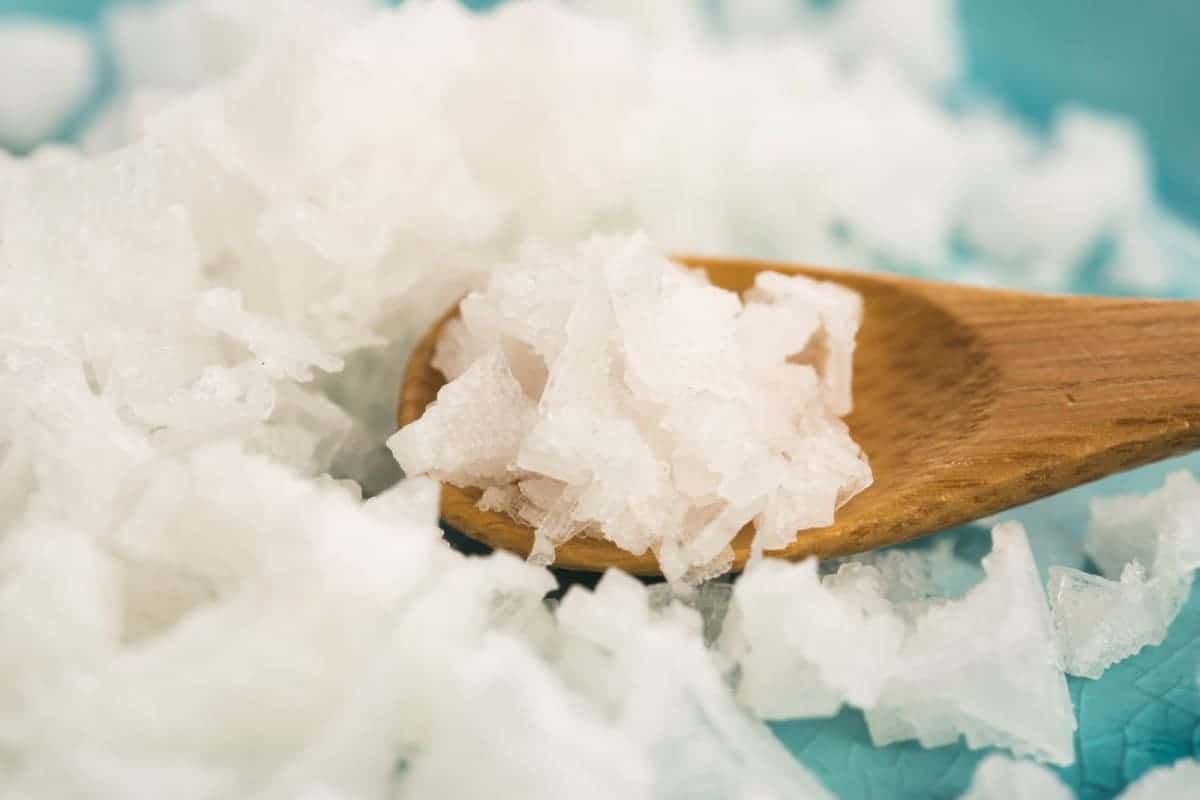
Fleur de Sel, or 'flower of salt', is a hand-harvested sea salt collected from the surface of salt ponds in France. It has a delicate flavor, moist texture, and slight crunch that distinguishes it from other salts.
Fleur de Sel can substitute for kosher salt in recipes, but its unique characteristics shine when used as a finishing salt, sprinkled on food just before serving.
Best for: Fleur de Sel is best used in dishes where its qualities will be highlighted, such as atop salads, grilled meats, or even sweet dishes like caramel and chocolate-based desserts.
3. Maldon Sea Salt
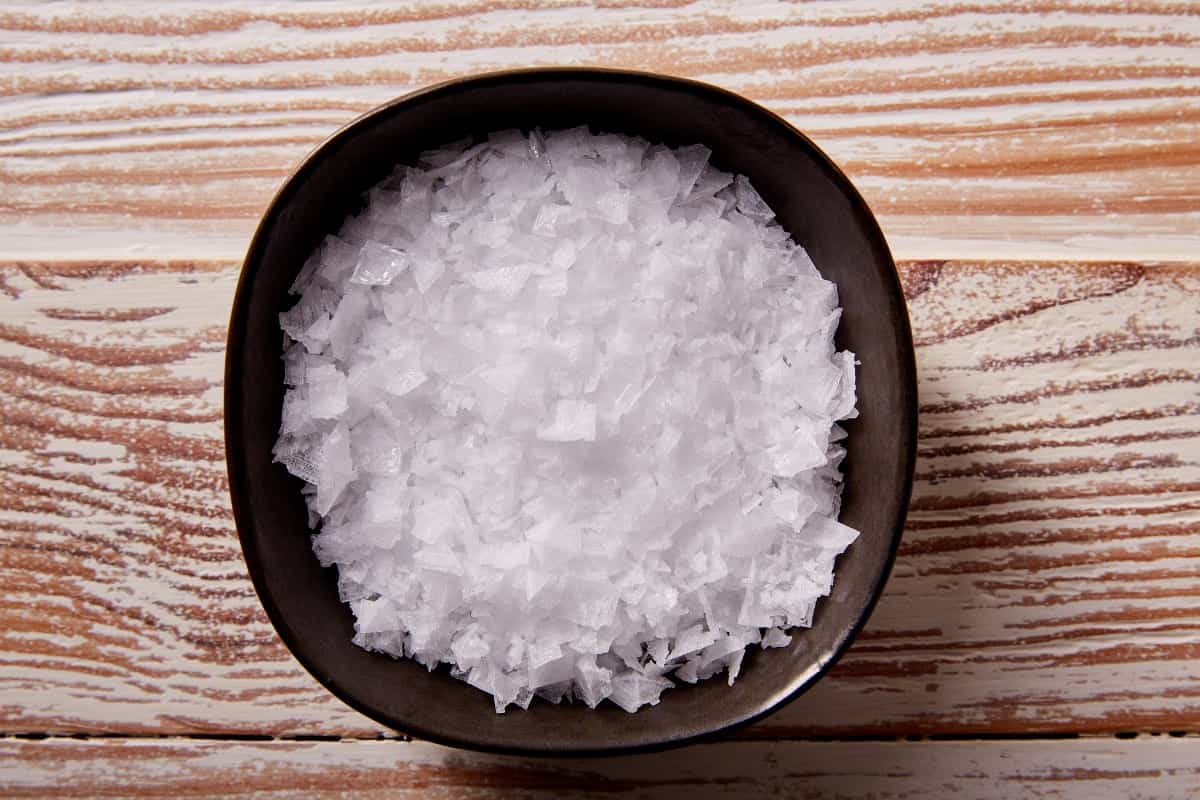
Maldon sea salt is a high-quality, hand-harvested salt from salt deposits in the town of Maldon, England: the history of Maldon salt is covered here by the team at Bon Appetit. It's known for its large, pyramid-shaped crystals and clean, light flavor.
As a kosher salt alternative, Maldon salt can be used in a 1:1 ratio, although its larger flakes might lead you to use a bit more to get the same level of saltiness.
Best for baked goods like flapjacks, cookies, and salted dark chocolate tarts as Maldon salt enriches the flavor. It's also fantastic for topping air fryer salmon steaks, white fish, and other seafood dishes.
Experimenting with these specialty salts will elevate your culinary creations to new heights of flavor and presentation.
Tips for Using Kosher Salt Alternatives
Be careful with that table salt!
Table salt is much finer than its kosher cousin, so you get much more salt flavor in a single teaspoon. Add around half the amount to avoid oversalting your food.
Smelling salts: careful what you're using
There are many fantastic salts available, and some of them should be used with caution. Black lava salt, for example, adds flavor to Himalayan dishes, but it carries a strong smell of sulfur and won't suit every dish.
Likewise, garlic salt may overpower other flavors if you're already adding garlic to a dish. It shines in some cuisines but should be used with care: if the recipe doesn't call for garlic, don't use it.
If in doubt, smell the salt before adding any!
RELATED: 10 Best Garlic Salt Substitutes - The First Step to Low Sodium Diet
Season at the end
The best way to control salt levels in soups, stews, and sauces is to wait until the end before you season the dish. You may want to add a little to directly season the meat or to help vegetables sweat down but hold off seasoning for taste until the dish is almost ready to serve.
What Is a Substitute for Kosher Salt When Pickling?

For pickling or preserving foods, pickling salt is an excellent substitute for kosher salt, with a pure granulated form that enhances natural flavors. It's also known as canning salt.
- Pure flavor: Pickling salt enhances natural flavors without the unwanted aftertaste.
- No additives: Unlike table salt and some sea salts, pickling salt does not contain additives like iodine or anti-caking agents and won't occasionally impart a bitter taste.
- Dissolves quickly: Its fine grain size allows it to dissolve easily in brines and other liquid solutions.
Tips for Substituting Pickling Salt
- Replace kosher salt with pickling salt in equal amounts, but always taste-test before finalizing adjustments.
- Reduce overall sodium intake by up to half or look into low-sodium options such as potassium-based substitutes.
Kosher Salt Substitute: Frequently Asked Questions
Coarse sea salt is typically the best 1:1 substitute for kosher salt. Like the coarse grains in the kosher version, its large flakes mean there's less salt in a teaspoonful than when you use iodized table salt.
Yes! But be careful: the salt grains are much smaller than ordinary salt, so you'll only need about half the amount of kosher salt recommended.
Yes. Himalayan salt has a fairly neutral flavor, but it is slightly more intense than kosher salt, so you should only use about half the amount.
Keeping it Kosher With Our Favorite Substitutes
Navigating through the flavorful world of kosher salt substitutes opens a realm of culinary possibilities. From the enchanting flavors of Pink Alaea and Fleur de Sel to the everyday accessibility of table salt, your kitchen escapades are destined for greatness.
Continue your gourmet journey with us. Our blog doesn't just stop at salt – we've curated a plethora of ingredient substitutes for you to explore. And for those keen on savoring the magic of air frying, our delectable air fryer recipes await your discovery.
Here's to turning your ordinary meals into extraordinary experiences, one ingredient at a time. Happy cooking!
Recipe
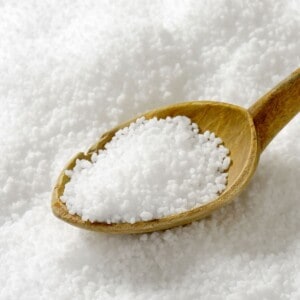
Best Kosher Salt Substitutes
Ingredients
- 1 teaspoon fine sea salt
- ½ teaspoon pink alanya sea salt
Instructions
Option 1: Fine Sea Salt
- Use equal amounts or slightly less since it dissolves quickly and has a more concentrated salty flavor.
Option 2: Pink Alaea Sea Salt
- To use Pink Alaea sea salt as a substitute for kosher salt, keep in mind that it's generally more flavorful, so start with a smaller quantity and adjust to taste.
Notes
You can find the video in the post above. If you don't see a video, please check your browser settings.


Leave a Reply